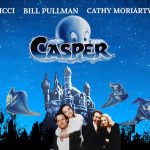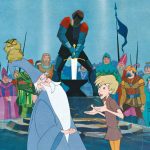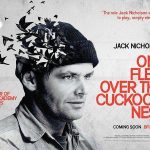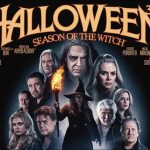A Hidden Life (2019)

Terrence Malick’s A Hidden Life is a cinematic exploration of the power of individual conviction in the face of overwhelming evil. Set against the backdrop of World War II, the film tells the true story of Franz Jägerstätter, an Austrian farmer who refused to pledge allegiance to Hitler’s regime, choosing instead the path of martyrdom over the demands of his country. Through Malick’s poetic vision, A Hidden Life not only examines one man’s moral resistance but also captures the profound struggle between inner faith and external pressure in a world consumed by war.
At the heart of this narrative lies the courageous Franz, played by August Diehl, whose quiet resolve and unwavering sense of right and wrong make him both a reluctant hero and a tragic figure. As the world around him descends into chaos, Franz’s decision to stand against the Nazi regime leads to his eventual arrest, torture, and execution. But Malick, never one to focus solely on the external drama, shifts the lens toward Franz’s internal world, portraying his relationship with his devoted wife, Fani (Valerie Pachner), and their children as the emotional core of his resistance.
The film’s cinematography, as expected from Malick, is breathtaking—lush landscapes of the Austrian Alps serve as both a visual contrast and a symbolic representation of the serene, yet tumultuous journey within Franz’s soul. The intimate, natural beauty of the land evokes a sense of timelessness, further underlining the film’s exploration of faith, sacrifice, and the hidden strength that resides in one’s conscience. The slow, deliberate pacing enhances the meditative nature of the story, allowing viewers to fully absorb its spiritual and moral weight.

The film’s score, composed by James Newton Howard, adds to its reverential atmosphere, with its gentle strings and subtle orchestral arrangements underscoring the quiet heroism at the heart of the story. The sound design, too, is meticulously crafted, drawing attention to the natural world around Franz—birds chirping, the rustling of leaves—reminding us of the contrast between the inner peace he strives to maintain and the world’s brutal violence.

Malick’s direction invites contemplation on the nature of evil and the price of moral integrity. Through Franz’s story, A Hidden Life asks profound questions about what it means to live with honor, to stand alone in your beliefs when the world demands submission. It also highlights the vital role of love and familial bonds in times of despair, illustrating how these relationships can become both a source of strength and a reason to keep fighting for what is right.
In the end, A Hidden Life is not just the story of one man’s resistance to a tyrannical regime; it is a universal meditation on the cost of standing firm in the face of injustice, on the sacrifices made by those who choose to remain true to their principles. As Franz’s journey unfolds, we are reminded that the most powerful acts of defiance may not be the loudest or most visible, but the quiet, steadfast choices made in the face of overwhelming darkness.
A Hidden Life is a reminder that true courage is not always found on the battlefield but often in the silence of one’s heart, in the hidden acts of defiance that ripple across the fabric of history.











